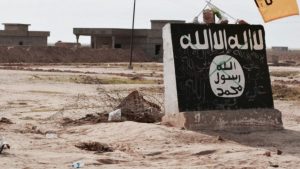It is no secret that Daesh is regrouping in Iraq and Syria. It is also growing and spreading in Libya, Nigeria, the Horn of Africa, the Sahel and elsewhere in Africa, like reported by arabnews.com.
In Yemen, as security forces make gains against Al-Qaeda in the Arabian Peninsula, Daesh is trying to fill the gap. The presence of Daesh is felt in the Philippines, Indonesia, Bangladesh and elsewhere. The group’s manifestations may go by different names and they may not be organically linked to the mother group, but these third generation offshoots are still lethal and have the potential to wreak greater havoc if the world lets its guard down.
The resurgence of Daesh should be of concern to all countries that have suffered at its hands — its recruitment of young men and women from all over the world, its unspeakable atrocities, in addition to imposing its ruthless and draconian rule over large populations.
The Global Coalition against Daesh was formed in September 2014 with the aim of degrading and ultimately defeating the terror group. The coalition’s 77 members have committed themselves to tackling Daesh on all fronts, to dismantling its networks and countering its global ambitions. Beyond the military campaign in Iraq and Syria, the coalition is working to disrupt its financing and economic tools, such as the exploitation of oil and other natural resources. It is working on stopping the flow of foreign terrorist fighters across borders. The coalition has publicly committed to stabilizing areas liberated from Daesh occupation and restoring essential public services. The coalition is also countering the group’s propaganda.
The Global Coalition has made great advances against Daesh in all of those areas. Militarily, it has dislodged the group from most of the territory it had occupied. Economically, it has starved it of many of its resources. It has slowed down and sometimes reversed the flow of foreign fighters to its various fronts. However, though greatly weakened, Daesh is surviving and is now regrouping and spreading. It is hard for many to believe that Daesh still has some appeal, given its many failures and the unspeakable crimes it has committed, but the group is a fact of life in many places.
What are the reasons for Daesh’s inexplicable survival? More importantly, what more needs to be done to speed up its demise and prevent a resurgence?
Conditions in Iraq and Syria, the places where Daesh was born and where it flourished, still provide a suitable environment for the group to survive. In Iraq, the post-election uncertainty has delayed the stabilization and development of areas liberated from Daesh. More than $30 billion was promised in February at the international reconstruction conference, but only a limited amount has been delivered due to that uncertainty.
Activities by pro-Iranian sectarian militias in and around the liberated areas have posed a threat to communities once under Daesh, making it easier for the terrorist group’s fighters to hide among the civilian population. Further, those militias are helping Iran ferry fighters and material from Iran, through Iraq and on to Syria. The fact that the coalition has not been able to stop those activities has provided Daesh with a useful propaganda tool as it positions itself against those militias.
In Syria, the military solution favored by the Syrian regime and its allies plays into the hands of Daesh and helps it survive. Assad and his allies have gone after moderate opposition groups, which were Daesh’s natural enemies. The relentless attacks against those forces, while sparing Daesh, will make it more difficult to defeat Daesh in Syria, despite the fall of Raqqa, its former seat of power. Some runaway militants from the defeated groups may even be tempted to join Daesh and affiliate themselves with it to survive.
Some countries have made no effort to bring their citizens-turned-militants back from the front lines in Syria and Iraq. Some have made it nearly impossible for them to go home, forcing them either to continue the fight or go somewhere else to join Daesh affiliates. The largest numbers of foreigners fighting with Daesh in Syria and Iraq come from Russia, mainly from its Muslim minorities. Russia has yet to develop programs to return them. Saudi Arabia and other countries have, for a while now, developed extensive programs to bring those fighters home to face justice and rehabilitation. There is no amnesty, but fighters are encouraged to surrender, come home and take advantage of those rehabilitation programs.
There is a need to provide a way out for foreign fighters, to encourage them to surrender and provide them with personal safety while awaiting trial. Their families, especially young children, should be extricated and taken home to protect them from abuse and exploitation, lest they become the next generation of terrorist fighters.
In most areas it is feasible and certainly necessary to expedite stabilization and development programs to create jobs and provide livelihoods for young people to prevent them from falling prey to recruitment by Daesh.
Finally, US threats of withdrawal from the fight can only play into Daesh’s hands. It may decide to wait out the Americans and reappear, stronger, after their departure.
In sum, the Global Coalition has to take another sober look at its Daesh policies. Its military victories may turn pyrrhic if Daesh ultimately wins after the campaign is over.



